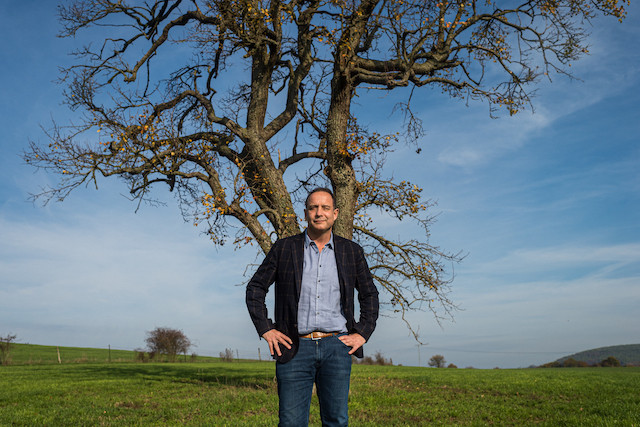Local cider producer Ramborn, since its start, has been committed harvesting apples and other fruit from local orchards which might otherwise have gone to waste and using them to create craft ciders, perries and--as of November--juices. When the health pandemic hit, the company once again made an impact by working with a local distiller to create hand sanitisers from its byproduct, donating it to workers and communities in need.
Founder and CEO Carlo Hein says he “stumbled over B Corp” online one day, used the self-assessment tool to check how his company ranked, “and the score was quite positive because Ramborn was a B Corp before knowing B Corp was around.”
In July 2019, he invited employees and stakeholders to the Born-based cider house to present the concept to them. The younger generation especially “were really energised by what they saw, that you really can have an impact in this world.”
Working with a consultant, Ramborn applied to become a B Corp, which required proofs and other documentation. By summer, it got the approval, joining the ranks of over 3,600 companies, including Patagonia, Ben & Jerry’s and Goodwings, and becoming the first Luxembourg brand to do so.
Hein praises the governance aspect behind the certification. “It was a good way of structuring [and] to have written procedures, which were around but not assembled. We have now an employee handbook [with] all that included.”
The B Corp certification helped align staff on a common goal. “We know exactly what we are doing, and what our impacts are for the planet, and that is a good feeling.”
So what would Hein say to cynics? The certification isn’t “classical”, says Hein, rather a “business and management tool”, with a focus on people and the planet, without sacrificing profitability. Every three years, Ramborn will be reassessed, “but the assessment tools help us find out places we can get involved, because we are benchmarked compared to [other] companies,” meaning the company can see how it’s doing in the market and get ideas for further improvement.
Thanks to the B Corp certification, the company decided to do two things: create the line of juices (CO2 is produced during fermentation) and set up an adopt-a-tree programme to further protect local biodiversity. Although the B Corp process varies depending on company size, Hein urges other business leaders to reflect on how they can increase their positive impacts. “By doing so, you build a better company.”
This article originally appeared in the 2021 Forecast edition of Delano released on 16 December.
